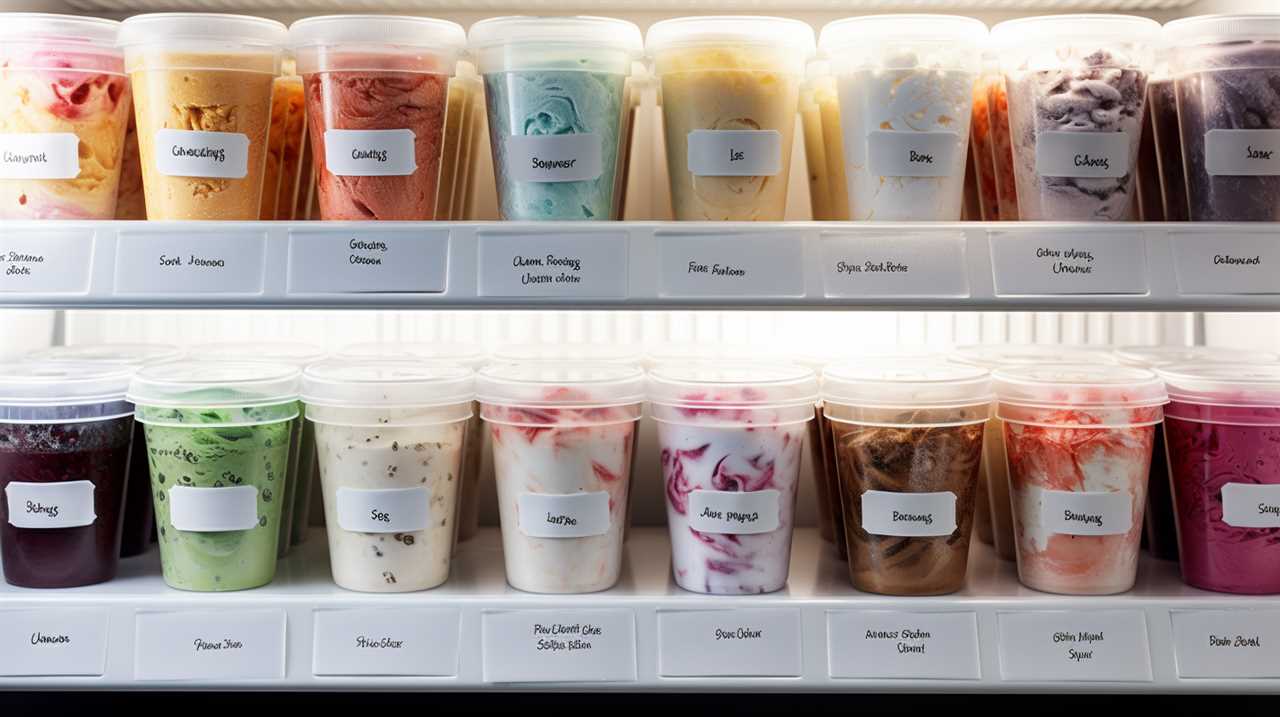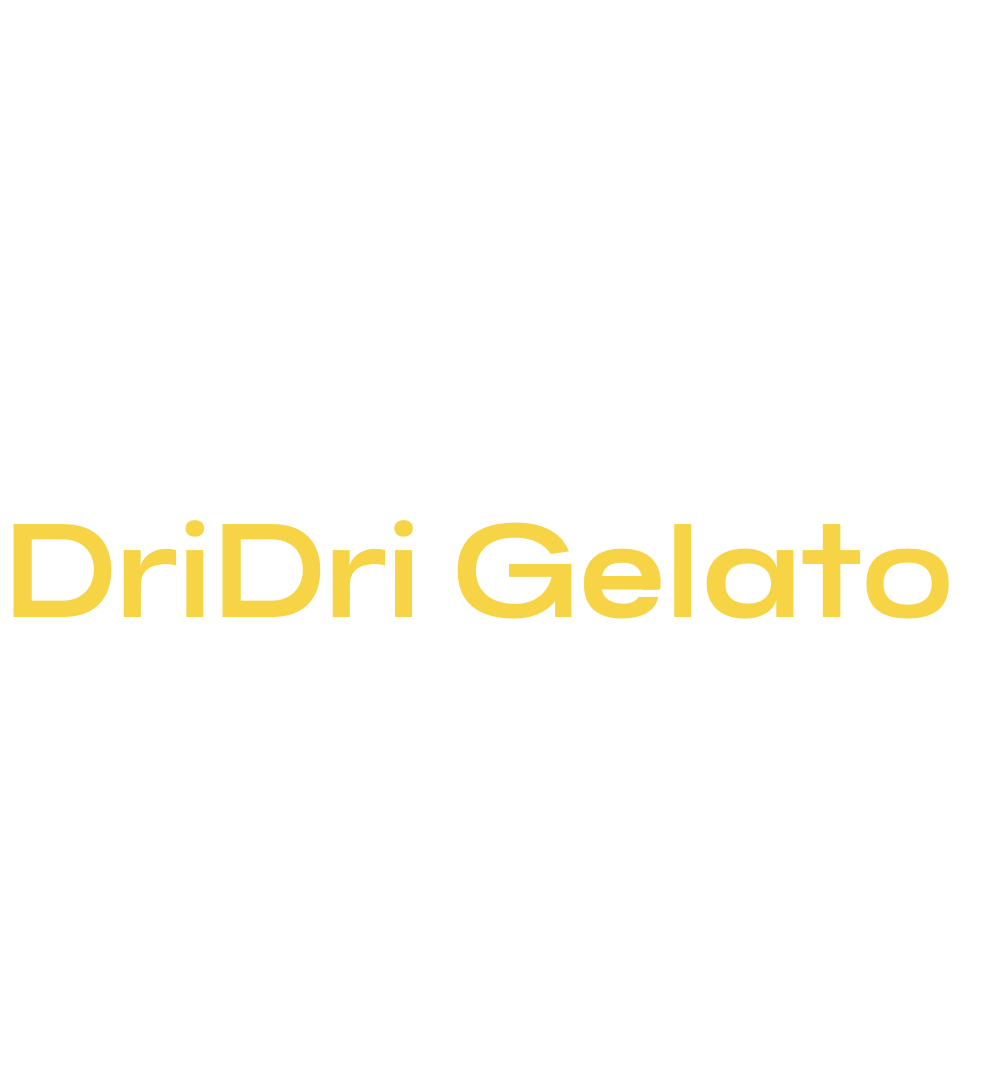Ice Cream for Pets
What Ice Cream Is Egg Free

Craving a smooth, delightful bowl of ice cream while steering clear of eggs? Search no more! In this piece, we delve into the realm of options for ice cream without eggs.
From common ingredients found in egg-free varieties to store-bought brands and homemade recipes, we’ve got you covered. Whether you follow a vegan lifestyle or simply prefer dairy-free treats, we’ll help you find the perfect egg-free ice cream that satisfies your cravings.
Let’s dive in and discover the delectable world of egg-free frozen delights together!
Key Takeaways
- Plant-based milk alternatives such as coconut milk and almond milk are commonly used as ingredients in egg-free ice creams.
- Stabilizers and emulsifiers are often added to egg-free ice creams to provide texture and consistency.
- Vegan ice cream options include coconut milk-based, almond milk-based, and cashew milk-based ice creams.
- Some popular store-bought egg-free ice cream brands include Ben & Jerry’s vegan flavors, Häagen-Dazs non-dairy ice creams, and So Delicious dairy-free frozen desserts.
Common Ingredients in Egg-Free Ice Creams
When making egg-free ice creams, we often rely on ingredients such as plant-based milk alternatives, stabilizers, and emulsifiers. In vegan baking, where eggs are typically used as a binding agent, it’s important to find suitable substitutes that provide the same functionality.
Luckily, there are several options available. Common egg substitutes in vegan baking include mashed bananas, applesauce, flaxseed meal, and aquafaba (the liquid from canned chickpeas). These ingredients not only act as binders but also add moisture and flavor to the final product.
Additionally, egg-free diets offer numerous health benefits. They’re lower in cholesterol and saturated fat, which can help reduce the risk of heart disease and improve overall cardiovascular health.
Egg-free ice creams provide a delicious and healthy alternative for those who choose to avoid eggs in their diet.
Vegan Ice Cream Options
Continuing the discussion on egg-free ice creams, let’s explore our options for vegan ice cream. Vegan ice cream has gained popularity in recent years due to the rise in plant-based diets and the desire for healthier dessert alternatives.
Here are some vegan ice cream options to satisfy your cravings:
- Coconut milk-based ice creams: These creamy delights are made from coconut milk, which provides a rich and smooth texture. They’re often flavored with fruits, nuts, or chocolate for added deliciousness.
- Almond milk-based ice creams: Made from almond milk, these options offer a light and nutty flavor. They’re perfect for those with lactose intolerance or nut allergies.
- Cashew milk-based ice creams: Cashew milk lends a creamy and velvety texture to these delectable treats. They’re often infused with flavors like vanilla, chocolate, or coffee.
Benefits of a vegan ice cream diet include reduced cholesterol levels, improved digestion, and increased intake of vitamins and minerals.
With the wide variety of plant-based ice cream options available, you can indulge in guilt-free desserts while still enjoying all the flavors you love.
Dairy-Free Ice Creams Without Eggs
Now let’s explore our options for dairy-free ice creams without eggs.
If you’re looking for a creamy, egg-free alternative, there are several delicious options available.
One popular choice is coconut milk ice cream. Made from the milk of coconuts, this dairy-free alternative offers a rich and creamy texture that’s both satisfying and indulgent.
Another option is almond milk ice cream, which is made from ground almonds and has a smooth and nutty flavor.
Soy milk ice cream is another great option for those looking for a dairy-free and egg-free alternative. It’s made from soybeans and has a creamy texture and mild taste.
Other alternative milk options, such as oat milk and rice milk, can also be used to create dairy-free ice creams without eggs.
These alternatives not only cater to dietary restrictions, but they also offer various health benefits. Dairy-free ice creams are often lower in saturated fat and cholesterol, making them a healthier option for those watching their intake. Additionally, these alternatives can be a great source of vitamins and minerals, such as calcium and vitamin D.
Store-Bought Egg-Free Ice Cream Brands
As we delve into the realm of store-bought egg-free ice cream brands, let’s explore the wide array of options available to satisfy your dairy-free cravings. When it comes to store-bought vegan ice cream flavors, there are several dairy-free frozen dessert alternatives to choose from. Here are three popular brands that offer a delicious variety of egg-free options:
- Ben & Jerry’s: Known for their creamy and indulgent ice cream, Ben & Jerry’s has a range of vegan flavors like Chocolate Fudge Brownie and Chunky Monkey.
- Häagen-Dazs: This well-known brand offers a selection of non-dairy ice creams, including flavors like Peanut Butter Chocolate Fudge and Coconut Caramel.
- So Delicious: With a focus on plant-based alternatives, So Delicious offers a wide range of dairy-free frozen desserts, including ice creams made from coconut milk, almond milk, and cashew milk.
These store-bought egg-free ice cream brands provide a delectable and satisfying treat for those looking for dairy-free options. Enjoy!
Homemade Egg-Free Ice Cream Recipes
Let’s dive into some delicious homemade egg-free ice cream recipes that we can enjoy together. When it comes to allergen-friendly ice cream alternatives, making your own at home is a great option. Not only can you control the ingredients, but you can also get creative with flavors. Here are three egg-free ice cream recipes to try:
| Flavor | Ingredients |
|---|---|
| Chocolate Peanut Butter | – 2 cups dairy-free milk |
- 1/2 cup sugar
- 1/2 cup cocoa powder
- 1/2 cup peanut butter
- 1 tsp vanilla extract
- Pinch of salt
- Chopped peanuts (optional) | | Strawberry Banana | – 2 cups dairy-free milk
- 2 cups frozen strawberries
- 2 ripe bananas
- 1/4 cup honey or maple syrup
- 1 tsp vanilla extract
- Fresh strawberries (for topping) | | Mint Chocolate Chip | – 2 cups dairy-free milk
- 1/2 cup sugar
- 1/2 cup fresh mint leaves
- 1/2 cup dairy-free chocolate chips
- 1 tsp vanilla extract
- Green food coloring (optional) |
These recipes are just a starting point. Feel free to experiment with different flavors and add your own personal touch. Enjoy your homemade egg-free ice cream!
Frequently Asked Questions
Are There Any Health Benefits to Choosing Egg-Free Ice Cream?
Choosing egg-free ice cream can have health benefits. By eliminating eggs, you reduce the risk of foodborne illnesses and allergies. Plus, egg-free options can still provide nutritional value, like being lower in cholesterol and saturated fats.
Can People With Lactose Intolerance Still Enjoy Egg-Free Ice Cream?
Yes, people with lactose intolerance can still enjoy egg-free ice cream. There are many dairy-free alternatives available that cater to those with lactose intolerance. Additionally, egg-free ice cream is also popular among the vegan community.

Are There Any Common Allergens in Egg-Free Ice Creams?
When it comes to egg-free ice creams, it’s important to consider common allergens. Thankfully, there are alternatives to eggs in ice cream recipes that can still deliver a delightful and safe treat for everyone.
How Can I Make My Own Egg-Free Ice Cream Without Using a Traditional Ice Cream Maker?
To make our own egg-free ice cream without a traditional ice cream maker, we can try making no-churn ice cream. This method involves whipping cream and sweetened condensed milk together, adding flavors, and freezing until creamy and delicious.
Are There Any Popular Egg-Free Ice Cream Flavors That Are Commonly Found in Stores?
There are many differentiating egg-free ice cream flavors in stores. It’s fascinating to explore the popularity of these options. We’ve found that more and more people are seeking out egg-free alternatives for various dietary reasons.
Is Turkish Ice Cream Typically Egg Free?
If you are looking for an ice cream translation article regarding Turkish ice cream, you might be interested to know that it is typically egg-free. Turkish ice cream, known as dondurma, is a unique and delicious treat made with salep and mastic resin, giving it a chewy texture and rich flavor.
Conclusion
In conclusion, there are plenty of delicious options for those seeking egg-free ice cream. Whether you’re vegan, lactose intolerant, or simply prefer egg-free desserts, there are numerous store-bought brands and homemade recipes to choose from.
Remember, ‘Variety is the spice of life,’ so go ahead and explore the many flavors and textures available in egg-free ice cream. Enjoy your sweet treats guilt-free!
Beyond the realm of flavor and technique, Adriano recognizes the importance of sustainability and conscious consumption. His writing often explores eco-friendly practices within the ice cream industry, highlighting the use of locally sourced ingredients, reducing waste, and supporting ethical production methods.
Ice Cream for Pets
Scoops of Joy: Uncovering Canines’ Love for Ice Cream

As dog lovers, we’ve often been curious about the captivating appeal ice cream has for our four-legged friends. In this piece, we delve into the scientific reasons behind dogs’ interest in this cold delicacy.
From the sensory appeal to the association with positive experiences, we uncover the secrets that make ice cream so irresistible to our canine companions.
So grab a scoop and join us on this journey to understand why dogs just can’t resist the sweet, creamy goodness of ice cream.
Key Takeaways
- Dogs have a strong preference for sweet flavors and enjoy the sensory appeal of ice cream.
- Dog-friendly flavors mimic dogs’ natural taste preferences and offer health benefits.
- Dog-friendly ice cream provides a safe and enjoyable way for dogs to cool down.
- Sharing ice cream creates positive associations and strengthens the bond between dogs and their owners.
Sensory Appeal of Ice Cream
The sensory appeal of ice cream is evident in the way we dogs eagerly devour it, savoring every lick and wagging our tails in delight. Our taste preferences play a significant role in our love for this frozen treat.
Dogs have a strong preference for sweet flavors, which ice cream provides in abundance. The combination of sugar, milk, and various flavors stimulates our taste buds, creating a pleasurable experience.
But it’s not just the taste that captivates us; it’s also the texture fascination. The creamy and smooth texture of ice cream adds another layer of enjoyment. The cold sensation on our tongues and the way it melts in our mouths heightens our sensory experience, making ice cream an irresistible indulgence.
Similarity to Dog-Friendly Flavors
Our love for ice cream is further enhanced by its similarity to our favorite dog-friendly flavors. Dogs have specific taste preferences, and many dog-friendly options mimic the flavors that dogs naturally enjoy.
Some popular dog-friendly flavors include peanut butter, pumpkin, and banana. These flavors aren’t only delicious to dogs but also offer health benefits. Peanut butter is a great source of protein and healthy fats for dogs. Pumpkin isn’t only tasty but also rich in fiber, which aids in digestion. Banana is packed with potassium, which supports heart health in dogs.
Cold Relief for Dogs
Let’s explore how ice cream can provide relief from the heat for our four-legged friends. While dogs may enjoy the taste of regular ice cream, it’s important to understand the potential health risks associated with feeding them this treat.
Regular ice cream often contains ingredients such as sugar, artificial sweeteners, and dairy, which can be harmful to dogs. These ingredients can lead to digestive issues, obesity, and even diabetes.
However, there are ice cream options specially formulated for dogs that offer a safe and enjoyable way to cool down. These dog-friendly ice creams are typically made with natural ingredients and don’t contain harmful additives. By choosing these alternatives, we can ensure that our furry companions receive the cold relief they need without compromising their health.
Now, let’s delve into how ice cream’s association with positive experiences makes it even more appealing to our canine friends.
Association With Positive Experiences
Eating ice cream creates a positive association in dogs due to the pleasurable sensations they experience. Dogs have an emotional connection with food, and ice cream can trigger feelings of happiness and satisfaction. This association is strengthened through Pavlovian conditioning, a process in which dogs learn to associate a particular stimulus (in this case, ice cream) with a positive outcome (pleasure).
Here are two ways in which dogs develop a positive association with ice cream:
- Taste and texture: Dogs have taste buds that can detect sweetness, and the creamy texture of ice cream can be very appealing to them. The combination of flavors and the coldness of the treat can create a pleasurable experience for the dog.
- Social interaction: Ice cream is often shared with dogs during special moments, such as family outings or celebrations. This shared experience enhances the positive association, as dogs feel included and loved when they’re given a treat like ice cream.
Bonding Over Shared Treats
We bond with our dogs over shared treats, such as ice cream. Sharing treats creates a sense of connection and reinforces the emotional bond we’ve with our furry companions.
When we indulge in a delicious ice cream cone together, we create shared memories that strengthen our relationship. Scientific research supports the idea that sharing food can enhance social bonding between humans and animals. According to a study published in the journal Appetite, sharing food promotes trust and cooperation, leading to a stronger emotional connection.
This emotional connection is crucial for building a positive and fulfilling relationship with our dogs. So, next time you enjoy a tasty treat with your four-legged friend, remember that you aren’t only satisfying their taste buds but also deepening your bond through shared experiences.
Frequently Asked Questions
Can Dogs Eat Any Flavor of Ice Cream, or Are There Certain Flavors That Are Unsafe for Them?
Dogs can eat certain flavors of ice cream that are safe for them. It’s important to choose dog-friendly ice cream flavors that don’t contain ingredients dogs are allergic to, like chocolate or artificial sweeteners.
Is It Safe to Give Dogs Ice Cream on a Regular Basis, or Should It Be Given as an Occasional Treat?
Giving dogs ice cream on a regular basis can pose health risks. It’s best to give it as an occasional treat. Our research shows that excessive consumption can lead to weight gain, digestive issues, and potential allergies.
Are There Any Potential Health Risks Associated With Feeding Dogs Ice Cream?
There can be potential health risks associated with feeding dogs ice cream. Dogs can have lactose intolerance, which can lead to digestive issues such as diarrhea and upset stomach.
How Can I Make Homemade Dog-Friendly Ice Cream for My Furry Friend?
To make homemade dog-friendly ice cream, we can use dog-friendly ingredients like yogurt, peanut butter, and bananas. It’s important to avoid using ingredients that are toxic to dogs, such as chocolate. Experiment with different flavor options to find what your furry friend enjoys the most.
Are There Any Alternative Frozen Treats That Are Just as Enjoyable for Dogs as Ice Cream?
There are numerous alternative frozen treats that can be just as enjoyable for dogs as ice cream. Many dog-friendly recipes incorporate ingredients like yogurt, fruit, or peanut butter, providing a tasty and refreshing option for our furry friends.
Do Cats Enjoy Ice Cream as Much as Dogs?
Cats don’t typically enjoy ice cream due to being lactose intolerant, unlike dogs. However, there are some reasons cats enjoy ice cream – primarily, the cold temperature and creamy texture. But it’s important to remember that feeding cats dairy can cause digestive issues, so it’s best to stick with feline-friendly treats.
Conclusion
In conclusion, it seems that dogs are inexplicably drawn to the frozen goodness of ice cream. Whether it’s the sensory appeal, the similarity to dog-friendly flavors, or simply the relief from the heat, our furry friends just can’t resist.
And who can blame them? After all, what better way to bond with our canine companions than over a shared treat?
So next time you indulge in a cool scoop, don’t forget to share the joy with your four-legged friend.
Beyond the realm of flavor and technique, Adriano recognizes the importance of sustainability and conscious consumption. His writing often explores eco-friendly practices within the ice cream industry, highlighting the use of locally sourced ingredients, reducing waste, and supporting ethical production methods.
Ice Cream for Pets
Why Do Cats Like Ice Cream

Have you ever wondered why cats seem to have such a fondness for ice cream? This peculiar habit often has us pondering.
In this article, we delve into the fascinating world of feline taste buds and explore the role of dairy in their attraction to this frozen treat.
Join us as we uncover the science behind cats’ pleasure response to ice cream and provide tips for safely indulging your furry friend.
Get ready to unravel the mystery of why cats like ice cream.
Key Takeaways
- Cats are attracted to ice cream due to the dairy proteins and fats it contains, which align with their heightened sensitivity to these nutrients.
- Lactose in ice cream appeals to cats’ preference for sweet taste and high-calorie foods, but not all cats can tolerate dairy due to lactose intolerance.
- The cool temperature and creamy texture of ice cream mimic sensations of fresh prey or milk for kittens, triggering cats’ hunting instincts.
- Cats’ pleasure response to ice cream is rooted in the release of dopamine in their brains, stimulated by the creamy texture and cool temperature of ice cream.
Feline Taste Buds and Ice Cream
We often wonder why cats enjoy eating ice cream, and understanding their feline taste buds can provide some insight into this phenomenon.
Cats have a unique tongue structure that plays a crucial role in their sensory preferences. Unlike humans, cats have papillae on their tongues that are pointed backwards, which helps them to rasp meat off bones and groom their fur efficiently. These papillae also play a role in their ability to taste different flavors.
Cats have a more limited range of taste receptors compared to humans, with a heightened sensitivity to proteins and fats. This may explain their affinity for ice cream, which contains both dairy proteins and fats.
The next section will delve into the role of dairy in cats’ attraction to ice cream, shedding further light on this intriguing behavior.
The Role of Dairy in Cats’ Attraction to Ice Cream
Dairy plays a crucial role in cats’ attraction to ice cream. Cats have taste receptors that are sensitive to the sweet taste of lactose, the sugar found in dairy products. This sweetness appeals to their natural preference for high-calorie foods. However, it’s important to note that not all cats can tolerate dairy due to lactose intolerance.
Here are three key points to consider:
- Dairy alternatives: For cats with lactose intolerance, there are dairy alternatives available that mimic the taste and texture of ice cream without the harmful effects of lactose.
- Lactose intolerance: Many adult cats lack the enzyme lactase, which helps break down lactose. Feeding them ice cream or other dairy products can lead to digestive issues such as diarrhea and stomach upset.
- Health considerations: While cats may be attracted to the taste of ice cream, it isn’t a suitable treat for them. High in sugar and fat, ice cream can contribute to weight gain, diabetes, and other health problems in cats.
Understanding the role of dairy in cats’ attraction to ice cream can help us make informed choices when it comes to treating our feline companions.
Exploring Cats’ Instinctual Behaviors and Ice Cream
As cat owners, it’s fascinating to observe how our feline friends’ instinctual behaviors come into play when it comes to their love for ice cream. Understanding cats’ sensory preferences can shed light on this intriguing phenomenon.
Cats have a highly developed sense of taste, but their preference for ice cream goes beyond just flavor. The cool temperature and creamy texture of ice cream mimic the sensation of fresh prey or milk for kittens. This triggers their hunting instincts and creates a pleasurable experience.
However, it’s important to note that while cats may enjoy the occasional lick of ice cream, it can have negative impacts on their digestive system. Cats are lactose intolerant, and ice cream contains high levels of lactose, which can lead to stomach upset and diarrhea. Therefore, it’s best to stick to cat-friendly treats to ensure their overall health and well-being.
The Science Behind Cats’ Pleasure Response to Ice Cream
Cats’ pleasure response to ice cream is rooted in their instinctual attraction to the cool temperature and creamy texture, which mimics the sensations of fresh prey or milk for kittens. Understanding the science behind this pleasure response requires a closer look at the neurological reactions that occur when cats consume ice cream.
The pleasure response study reveals fascinating insights into how cats experience pleasure when indulging in this frozen treat. Here are three key findings that evoke emotion in cat owners:
- Cats’ brains release dopamine, a neurotransmitter associated with pleasure and reward, when they consume ice cream.
- The creamy texture stimulates their taste buds, triggering a pleasurable sensory experience.
- The cool temperature provides a refreshing sensation, similar to how cats would feel when licking their fur after a successful hunt.
These neurological reactions explain why cats find ice cream so enticing and enjoyable. With this understanding, we can now move on to exploring tips for safely treating your cat to ice cream.
Tips for Safely Treating Your Cat to Ice Cream
To ensure a safe and enjoyable experience for our feline friends, let’s explore some tips for treating them to ice cream.
While cats may enjoy the occasional taste of ice cream, it’s important to remember that dairy products can be difficult for them to digest.
To minimize potential risks, it’s advisable to opt for cat-friendly alternatives such as specially formulated frozen treats made from ingredients that are safe for cats, like lactose-free milk or yogurt.

It’s crucial to avoid flavors that contain toxic substances like chocolate, as they can be harmful to cats.
Additionally, it’s essential to serve ice cream in small portions and monitor your cat for any signs of discomfort or digestive issues.
Frequently Asked Questions
Can Cats Eat Other Frozen Treats Besides Ice Cream?
Yes, cats can eat other frozen treats besides ice cream. Frozen yogurt is a good alternative, as long as it doesn’t contain any harmful ingredients. Popsicles made from safe ingredients can also be enjoyed by cats in moderation.
What Are Some Common Signs of Lactose Intolerance in Cats?
Some common signs of lactose intolerance in cats include diarrhea, vomiting, and abdominal discomfort. As for alternatives to ice cream, cats can enjoy frozen treats made specifically for them, such as lactose-free yogurt or meat-based frozen snacks.
Are There Any Health Risks Associated With Feeding Cats Ice Cream?
Feeding cats ice cream can lead to potential digestive issues due to their lactose intolerance. It’s important to note that approximately 65% of cats have a reduced ability to digest lactose, making ice cream a risky treat for them.
Can Cats Become Addicted to the Taste of Ice Cream?
Yes, cats can crave ice cream due to its sweet taste, but it’s not safe for them to consume dairy products. Cats lack the necessary enzymes to digest lactose, which can lead to digestive issues and discomfort.
How Often Is It Safe to Give My Cat a Small Amount of Ice Cream as a Treat?
We should limit the frequency of ice cream treats for our cats. An interesting statistic shows that a small amount of ice cream once a month is safer. Alternatives like frozen yogurt or cat-friendly treats are better options.
Is the Soft Texture of Ice Cream Appealing to Cats?
Many cat owners wonder about the science of soft ice cream and its appeal to cats. While cats are lactose intolerant and should not be given ice cream, some may be attracted to its texture. However, it’s important to remember that ice cream can be harmful to their digestive system.
Conclusion
In conclusion, the science behind cats’ love for ice cream lies in their taste buds and instinctual behaviors. While cats may be attracted to the creamy texture and sweet taste of ice cream, it’s important to remember that not all cats can tolerate dairy.
So, if you decide to treat your feline friend, make sure to opt for cat-friendly alternatives. Just like us, cats can indulge in a little frozen delight, but always prioritize their health and well-being.
Beyond the realm of flavor and technique, Adriano recognizes the importance of sustainability and conscious consumption. His writing often explores eco-friendly practices within the ice cream industry, highlighting the use of locally sourced ingredients, reducing waste, and supporting ethical production methods.
Ice Cream for Pets
Is McDonald’s Ice Cream Toxic For Dogs

- Is there an alternative ice cream option for dogs with lactose intolerance?
- What are the potential risks of feeding McDonald’s ice cream to dogs with lactose intolerance?
Curious if McDonald’s ice cream is a secure snack for your furry friend? Fear not, we’ve gathered all the necessary details for you!
In this article, we’ll explore the potential risks of feeding McDonald’s ice cream to dogs and provide safe alternatives. Our goal is to provide you with evidence-based information to help you make informed decisions about your dog’s diet.
So, let’s dive in and find out if McDonald’s ice cream is toxic for dogs!
Key Takeaways
- McDonald’s ice cream contains dairy, which dogs are generally lactose intolerant to.
- Artificial additives in McDonald’s ice cream can potentially cause allergies and gastrointestinal discomfort in dogs.
- Feeding McDonald’s ice cream to dogs can lead to digestive issues, weight gain, and obesity.
- Safe alternatives to McDonald’s ice cream for dogs include dog-friendly ice cream brands and homemade recipes using natural ingredients.
Ingredients in McDonald’s Ice Cream
In our investigation of the potential toxicity of McDonald’s ice cream for dogs, it’s crucial to examine the ingredients used in its production. Understanding the dairy content and artificial additives present in this frozen treat can shed light on its potential impact on our furry friends.
McDonald’s ice cream contains a significant amount of dairy, including milk and cream. While dogs are generally lactose intolerant and may experience digestive issues when consuming dairy, the small amounts found in ice cream may not pose a significant threat to their health.
However, it’s important to note that artificial additives, such as stabilizers and emulsifiers, are commonly used in McDonald’s ice cream. These additives can potentially cause allergies or gastrointestinal discomfort in dogs.
As responsible pet owners, it’s essential to consider these ingredients before sharing any human treats with our beloved companions.
Potential Risks of Feeding McDonald’s Ice Cream to Dogs
Feeding McDonald’s ice cream to dogs can pose potential risks. While many dogs enjoy the taste of ice cream, it’s important to understand the potential health effects and risks of dairy products for dogs.

Dairy products, including ice cream, contain lactose, a sugar that dogs often have difficulty digesting. This can lead to digestive issues such as diarrhea, vomiting, and gas. Additionally, ice cream is high in fat and calories, which can contribute to weight gain and obesity in dogs. Obesity can lead to a variety of health problems, including diabetes, heart disease, and joint issues.
Furthermore, the ingredients and additives in fast food ice cream may not be suitable for canine consumption. It’s always best to consult with a veterinarian before feeding McDonald’s ice cream or any other dairy product to your dog.
Signs of Toxicity in Dogs From Mcdonald’s Ice Cream
We can observe several signs of toxicity in dogs who’ve consumed McDonald’s ice cream. Dogs that have ingested McDonald’s ice cream may experience symptoms of poisoning, such as vomiting, diarrhea, excessive drooling, increased thirst, and restlessness. These signs may indicate that the ice cream contains ingredients that are harmful or difficult for dogs to digest. Additionally, some dogs may also develop allergic reactions to certain components of the ice cream, leading to skin irritations, itching, or even respiratory distress.
While it may seem harmless to share a tasty treat with our furry friends, it’s important to be aware of the potential health effects it can have on them. It’s crucial to monitor your dog closely if they’ve consumed McDonald’s ice cream and to seek veterinary attention if any concerning symptoms arise.
Safe Alternatives to McDonald’s Ice Cream for Dogs
While it’s important to avoid feeding dogs McDonald’s ice cream, there are safe alternatives available for our furry friends. Here are three dog-friendly ice cream options that you can consider:
- Dog-Friendly Ice Cream Brands: Several companies now offer ice cream specifically made for dogs. These brands use dog-safe ingredients and flavors that dogs love. Look for options that are lactose-free and made with natural ingredients. Some popular brands include ‘Frosty Paws’ and ‘Ben & Jerry’s Doggie Desserts.’
- Homemade Ice Cream Recipes for Dogs: Another option is to make your own dog-friendly ice cream at home. You can use ingredients like plain yogurt, ripe bananas, peanut butter, and unsweetened applesauce to create a delicious and safe treat for your dog. There are many simple recipes available online that you can try.
- Frozen Fruit Treats: Dogs can enjoy frozen fruits like watermelon, strawberries, and blueberries as a refreshing and healthy alternative to ice cream. Just make sure to remove any seeds or pits, and serve the fruits in small, bite-sized pieces.
Steps to Take if Your Dog Consumes McDonald’s Ice Cream
If your dog has consumed McDonald’s ice cream, it’s important to take immediate action to ensure their well-being. Here are steps you can take to address the situation and prevent further harm.
First, remain calm and assess the situation. Check for any immediate signs of distress, such as vomiting or diarrhea.
Next, contact your veterinarian for guidance. They’ll be able to provide specific instructions based on your dog’s size, breed, and overall health.

While waiting for professional advice, monitor your dog closely and make sure they’ve access to plenty of fresh water.
In the future, consider training your dog to avoid eating human food altogether. This can be achieved through positive reinforcement techniques, such as rewarding them when they choose their own food or treats over human food.
Frequently Asked Questions
Can Dogs Have Any Flavors of Mcdonald’s Ice Cream?
Dogs can enjoy various flavors of McDonald’s ice cream. However, it’s important to note that some ingredients may not be ideal for them. To ensure their safety, consider dog-friendly ice cream alternatives and follow tips for sharing ice cream safely.
Is Mcdonald’s Ice Cream Safe for Dogs With Lactose Intolerance?
Yes, McDonald’s ice cream may not be safe for dogs with lactose intolerance. It’s important to consider alternatives or risk potential digestive issues. Let’s explore the options for our furry friends!
What Are the Common Symptoms of Ice Cream Toxicity in Dogs?
Signs and symptoms of ice cream toxicity in dogs include vomiting, diarrhea, abdominal pain, and dehydration. Treatment involves supportive care, such as fluid therapy, to address the symptoms and prevent further complications.
Are There Any Long-Term Health Effects of Feeding Mcdonald’s Ice Cream to Dogs?
Feeding our furry friends McDonald’s ice cream may have long-term health effects. Consider healthier alternatives to keep them safe. Remember, "you are what you eat," and that applies to our pets too.
Can Dogs Have Other Fast Food Ice Creams Besides Mcdonald’s?
Can dogs eat other fast food ice creams? Are there any alternative ice cream options for dogs? Yes, dogs can have other fast food ice creams besides McDonald’s, but it’s important to choose options that are safe and suitable for their dietary needs.
Can Dogs Get Sick from Eating McDonald’s Ice Cream?
While rare, dogs can indeed get sick from eating McDonald’s ice cream. The ingredients in the ice cream, combined with potential bacteria from mcdonald’s ice cream machines, can cause gastrointestinal upset in dogs. It’s best to avoid allowing your furry friend to indulge in human treats.
Conclusion
In conclusion, it’s best to avoid feeding McDonald’s ice cream to dogs due to potential risks and ingredients that may be harmful.
Signs of toxicity in dogs from consuming McDonald’s ice cream shouldn’t be ignored.
Instead, opt for safe alternatives specifically made for dogs.
Remember the saying, ‘Better safe than sorry’ when it comes to the well-being of our furry friends.
Always prioritize their health and choose their treats wisely.

Beyond the realm of flavor and technique, Adriano recognizes the importance of sustainability and conscious consumption. His writing often explores eco-friendly practices within the ice cream industry, highlighting the use of locally sourced ingredients, reducing waste, and supporting ethical production methods.
-
Beginners Guides4 weeks ago
10 Differences Between Ice Cream and Popsicles
-

 Beginners Guides4 weeks ago
Beginners Guides4 weeks agoCreamy Remedies: Good Ice Cream Choices for Acid Reflux Relief
-

 Beginners Guides4 weeks ago
Beginners Guides4 weeks agoHow to Do When Your Ice Cream Tastes Gritty: Quick Fixes
-

 About Ice Cream2 weeks ago
About Ice Cream2 weeks agoWhat Military Diet Rules Allow Ice Cream?
-

 Creative Ice Cream Recipes1 month ago
Creative Ice Cream Recipes1 month agoWho Makes Dairy Queen Ice Cream
-

 About Ice Cream2 weeks ago
About Ice Cream2 weeks ago10 Reasons Why You Feel Like Throwing Up When You Eat Ice Cream
-

 Start your own Ice Cream Shop2 months ago
Start your own Ice Cream Shop2 months agoWhat Makes Ice Cream Salt Essential in the Freezing Process?
-

 About Ice Cream2 weeks ago
About Ice Cream2 weeks agoHow Pouring Milk on Ice Cream Causes Ice Crystals




















